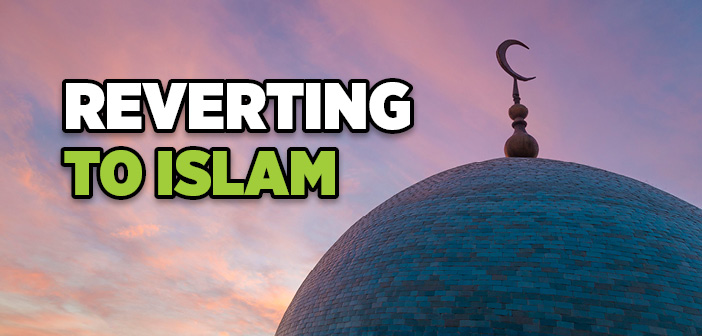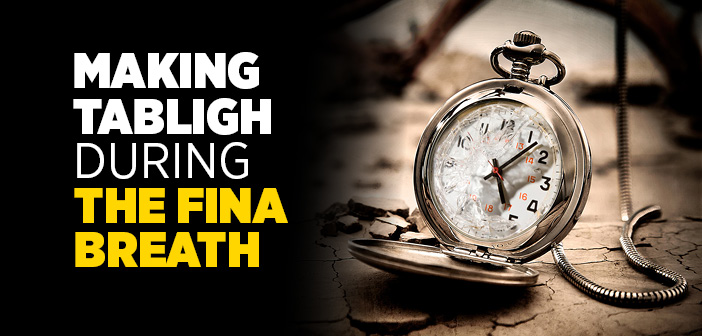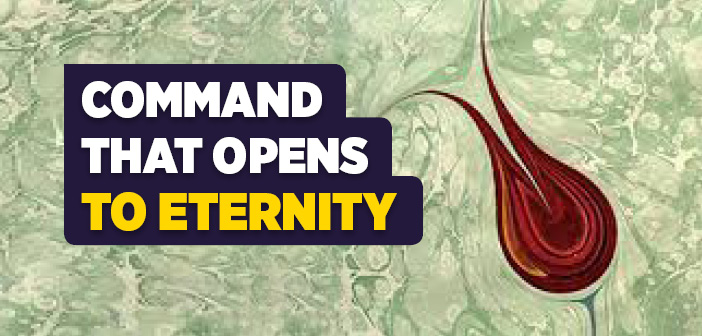What is the final breath? What to do on the final breath?
Abu Ayyub al-Ansari (RA) was privileged with the honour of hosting the Blessed Prophet (SAW) in Medina. He took part in battles alongside him. Just like his brethren from the Ansar, he devoted his life and wealth to the cause of Allah’s Messenger (SAW) and donated generously. Deeming all these services insufficient, he even took part in two in campaigns to conquer Istanbul. During one of them, he overheard people talking about a Medinan warrior who thought nothing of his life as he lunged at the enemy lines. They were remarking:
“Is what this young man doing, right? Does not Allah the Almighty command us not to put ourselves in danger with our own hands?”
Abu Ayyub al-Ansari (RA) immediately interrupted, saying:
“Do not misinterpret the verse! That verse was revealed about us. After the conquest of Mecca, some people from the Ansar began thinking:
‘What we have done since the Hegira is enough. We can now return to our fields and gardens. From now on, step back and let others make the sacrifices needed’. It was then that the following verse was revealed:
“Spend in the way of Allah and do not throw yourselves into danger with your own hands. Do good, for Allah loves those who do good.” (Al-Baqarah, 2:195)
How wonderful an example Abu Ayyub al-Ansari (RA) sets for us with his mindset. He never considered the services he lent as enough; and to be among the recipient of the Prophet’s (SAW) tidings:
“Istanbul will certainly be conquered…” (Ahmed, IV, 335; Hakim, IV, 468/8300)
…he participated in the Istanbul campaign, despite being over eighty years of age. And just before passing away during the campaign, he made one final wish, saying:
“Bury me at the furthermost point your feet will reach, so that the soldiers of Islam to come after us can advance even beyond!” In doing so, he wished to make tabligh even through his death and from inside the grave.
And his wish was granted. Eight centuries later, as Istanbul was on the verge of being conquered, Abu Ayyub al-Ansari’s (RA) grave was rediscovered through the spiritual insight of Akshemseddin (QS); and this served as a major source of morale and spirituality for the ultimate success of the campaign. That spot is now known as Eyup Sultan and since that day, it has been Istanbul’s spiritual centre.
The Almighty Allah makes people love those He loves. (see, Maryam 19:96)
Let us think;
Even though we are still alive, how many guests do we receive in a single day, compared to the guests Abu Ayyub al-Ansari (RA) continues to receive?
Each day, thousands of people visit Abu Ayyub al-Ansari (RA) to find peace and rejuvenate their spirits.
This uplifting scene is nothing but an example of the endless rewards offered to those who strive to promote the good and prevent evil, and keep their spirits close to the Almighty Allah.
Another exceptional display of fervour in making tabligh is provided by Abdullah Ibn Umm Maktum (RA). As he was blind, the Prophet (SAW) would not take Umm Maktum (RA) on military campaigns and instead leave him in Medina to lead the prayers for the elderly people, children and women left behind.
Still, in order not to be deprived of the rewards of tabligh and jihad, Abdullah Ibn Umm Maktum (RA) applied to enlist in the army for the Battle of Qadisiyyah and asked to bear the army’s flag. When people asked him how he was going to fight with eyes that could not see, he gave the beautiful response below:
“Despite my condition, I may yet provide you great service. My blindness will prevent me from seeing the swords of the enemy and I can therefore carry the flag at the forefront without becoming disheartened. And seeing me advance towards the enemy without fear will increase the courage, valour and excitement of Muslim soldiers.”
One report suggests that Abdullah Ibn Umm Maktum (RA) was martyred in this battle.
Another example for the love of tabligh and jihad is Khalid ibn Walid (RA).
Khalid ibn Walid (RA) was a Muslim general with major victories to his name. Despite having spent so much time on battlefields, however, he was about to breathe his final breath at home on his deathbed. Sad that he would be able to become a martyr, he lamented to his friends gathered by his side:
“What saddens me the most is that this warrior who has spent his entire life among the neighs of horses and the rattling of swords, is about to die on a bed, like the weak.
Woe to Khalid who cannot die a martyr! There is not an inch on my body that does not bear the scars of a sword or a spear. Will a person who spent his entire life galloping his horses in the way of spreading Islam, now meet death on a bed?”
He then said:
“This is my will. Raise me on my feet!”. As soon as they raised Khalid, he added:
“Now leave me! Let my sword now carry me, like it has done so to this day.” He then leant against his sword.
“I will meet death standing, just like in battle.
After I die, give my horse to a brave man who can throw himself at the feet of danger in war. I will die without leaving behind anything but my sword and my horse. Dig my grave with this sword. It is the rattling of swords that give the brave pleasure.”
Shortly after, he fell on his bed; and said the shahadah as he surrendered his soul. (Sadık Dana, İslam Kahramanları, 1, p. 89-90)
How deep a passion for tabligh the three companions mentioned had, even during their final breath.
They excitedly strived to enhance their spiritualities and sought refuge in the Almighty Allah from meeting the disastrous end foretold in the verse below:
The Qur’an says:
“And spend in the way of Allah from what We have provided you before death draws near and you say, ‘My Lord, if only You would delay me for a short time so I would give charity and be among the righteous.” (Al-Munafiqun, 63:10)
May the Almighty Allah allow us to take a share of their example.
May the Almighty Allah deliver us to guidance. May He turn us into people who can wear the smile of Islam for those bereft of guidance; people whose hearts lunge at the opportunity to show the way to people desperate for direction.
Source: BEING A GUIDING LIGHT, Osman Nuri Topbas, Erkam Publications
 Source: BEING A GUIDING LIGHT, Osman Nuri Topbas, Erkam Publications
Source: BEING A GUIDING LIGHT, Osman Nuri Topbas, Erkam Publications




